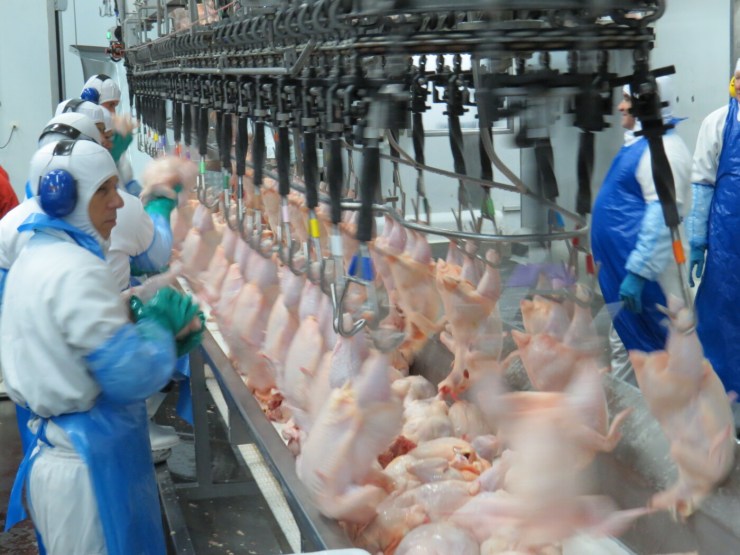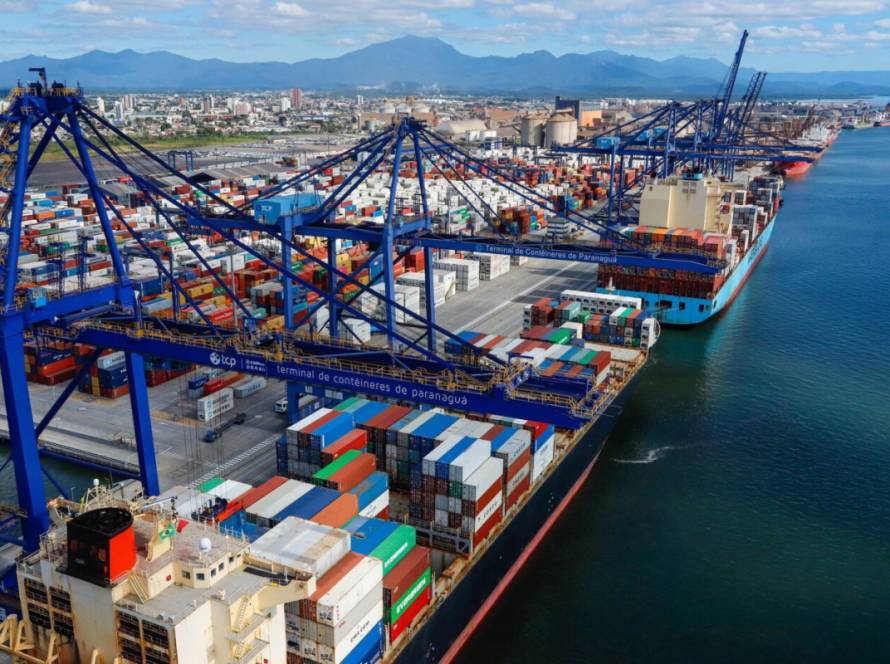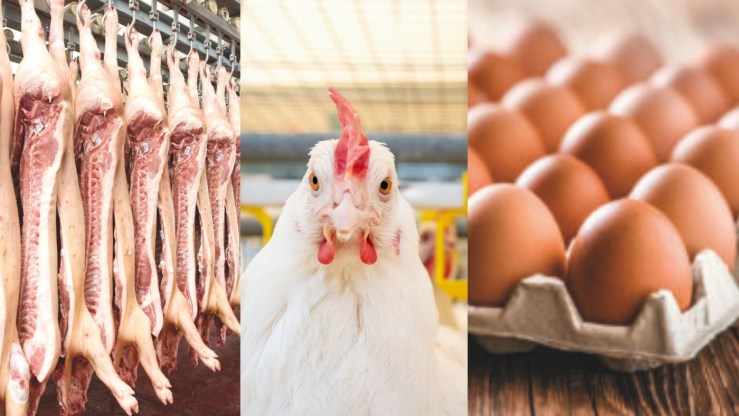Brazilian agribusiness exports totaled US$15.6 billion in March 2025, according to data released by the Secretariat of Foreign Trade (Secex). The figure represents an increase of 39.2% compared to the previous month and 12.5% more compared to March 2024. The main highlights were soybeans, meat, coffee and corn, which drove the positive performance, with record volumes in some cases for the first quarter of the year.

Photos: Claudio Neves
With the harvest progressing, soybean shipments more than doubled in March compared to February, reaching 14.7 million tons, a volume 17% higher than that of March 2024. It was the highest level in history for the period. Despite this, prices fell 8.2% in the same comparison, closing at US$$ 397.7 per ton.
Among derivatives, soybean oil registered an increase of 53% in the volume exported compared to last year, totaling 204.2 thousand tons, sold at US$ 1,009.2/t, an increase of 14%.
Bran also had an expressive performance: 1.98 million tons were shipped, 15% above March 2024, even with a 20% drop in prices, which stood at US$ 358.5/t.
Meats
In the meat sector, fresh beef exported volume grew by 30% compared to the same month last year, totaling 215.4 thousand tons. Shipments also exceeded those of February by 13%. The ton was traded at US$$ 4,898.9, 8.2% above the value recorded in March 2024.
Fresh chicken meat maintained a positive performance, with a growth of 3% in the exported volume (408.8 thousand
Fresh pork meat broke a historic record for March, with 102.7 thousand tons exported, an increase of 30% compared to the previous year.
Asian demand was decisive, accounting for 66% of shipments. The average price was US$$ 2,518.5/t, an increase of 11% compared to March 2024.
Eggs
Egg shipments grew 96% year-on-year, driven by demand from the United States, which accounted for 54% of the 2,000 tons exported in March — practically the total purchased by the country in the entire last year. In the quarter, exports totaled 8,500 tons, with an average price of US$$ 2,035.8/t, an increase of 14.3%, the best performance since 2012. Even so, the share of eggs in total Brazilian agricultural exports remains low.

Photo: Shutterstock
In 2024, Brazil exported 18.1 thousand tons of eggs, a drop of 26% compared to 2023. Chile was the main destination, with 37% of the total, followed by the United Arab Emirates (13%) and the United States (12%).
Corn
Corn had significant growth of 104% compared to March 2024, with 870.7 thousand tons shipped at an average price of US$ 238/t, an increase of 3.8% in the annual comparison and 5.6% compared to February.
Coffee
Coffee also recorded good results. 219.1 thousand tons were exported in March, 5% above the volume of the previous year. Prices soared: an increase of 83.2% compared to March 2024 and 8.4% compared to February, reaching US$$ 6,501.6 per ton. In the accumulated quarter, shipments totaled 636.6 thousand tons, a decrease of 2% compared to the same period last year.
Sugar-energy sector
In the sugar and energy sector, ethanol was a positive highlight, with an increase of 20% in export volume (259.2 thousand m³) and appreciation of 9.8%, to US$ 580.4/m³. VHP sugar saw a 32% drop in shipments, which totaled 1.5 million tons, traded at US$ 464.4/t, a drop of 8%. Refined sugar
also registered a drop, with 332 thousand tons exported, a drop of 25%, to US$ 513.3/t, 14% below March 2024.
Relationship with the United States
The United States is the second largest destination for Brazilian exports, behind only China. In 2024, Brazil exported more than US$40.3 billion to the United States, with US$12 billion in agribusiness products — 30.1 billion of the total.
Agricultural exports to the US grew 73% in the last 10 years, a faster pace than other sectors, which grew 41.3%. The main items exported to the country in 2024 were forestry products (31%), coffee (17%), meat (12%), juices (10%) and products from the sugar-energy complex (6.6%).
Despite the recent implementation of tariffs by the US, the immediate impacts on Brazilian agriculture are still uncertain. While some sectors may be affected, others may benefit. In the case of soybeans, for example, trade restrictions between the United States and China make Brazil a more competitive supplier to the Chinese market.
However, the future will depend on the evolution of geopolitical tensions and possible agreements between the United States, China and the European Union, which could influence the pace of the global economy and, consequently, the performance of Brazilian exports.





